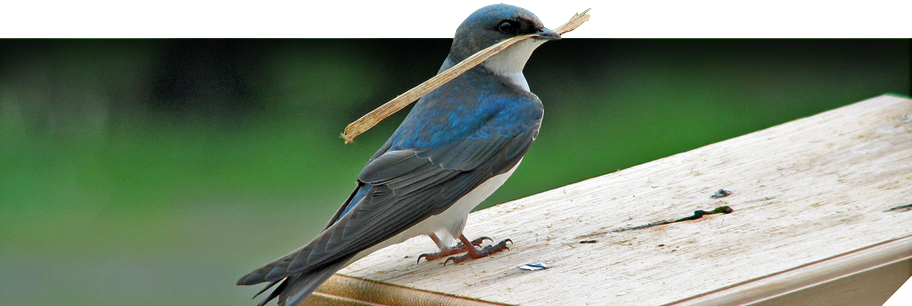Sometimes nest boxes are used by species for which they were not intended. Wasps, mice, squirrels, and other wildlife can compete with native cavity-nesting birds for nest sites. Here are some tips for discouraging nest box usurpers.
House Wrens are sometimes considered problematic. These sprightly birds are very territorial and may use similar tactics as House Sparrows to evict nesting pairs from their nests. Unlike the House Sparrow and European Starling, House Wrens are protected by the Migratory Bird Treaty Act. You may not legally remove nesting material, eggs, nestlings, or adult House Wrens from a nest box. If House Wrens are not wanted, wait until after the breeding season is over to move your nest boxes away from shrubby areas, which are prime House Wren habitat. Another solution is to place a box or two in good wren habitat. This will give them a place to nest and decreases the chance that they will usurp boxes meant for other species.
All About Birds is a free resource
Available for everyone, funded by donors like you
American Kestrel by Blair Dudeck / Macaulay Library Search for species name or keywords
Or Browse Bird Guide by Family or Shape
Need Bird ID Help? Try Merlin
Where Birds Come to Life

Occasionally, species for which nest boxes were not designed use them. For nest sites, native cavity-nesting birds may face competition from wasps, mice, squirrels, and other wildlife. Here are some tips for discouraging nest box usurpers.
House Wrens are sometimes considered problematic. These nimble birds are fiercely protective of their nests and may employ strategies akin to those employed by House Sparrows to drive out nesting pairs. The Migratory Bird Treaty Act protects House Wrens, but not House Sparrows or European Starlings. Removing nesting materials, eggs, nestlings, or adult House Wrens from a nest box is illegal. If you don’t want House Wrens, move your nest boxes away from shrubby areaswhich are ideal habitat for House Wrensafter the breeding season. Another option is to put a few boxes in an area suitable for wren habitat. This will provide them with a nesting area and lessen the likelihood that they will take boxes intended for other species.
Bees in Your Box?
Bees play a crucial role in pollinating the wild foods that birds require to survive. However, they do sometimes take over nest boxes. Keep your boxes plugged until just before the target species’ breeding season to reduce the chance of bees colonizing them. Because bees will fiercely defend their colonies, it is best to contact a professional pest management company or bee keeper to remove any insects that have already moved into your box. Africanized bees resemble native bees in appearance but are far more aggressive; they are becoming much more common in the United States. It is not advisable to try removing a bee colony without expert assistance. After they have been securely removed, use soapy water to remove any combs or wax from the box.
FAQ
How do I keep wasps out of my birdhouse nest?
Do wasps build nests in bird houses?
How do I get rid of yellow jackets in my birdhouse?